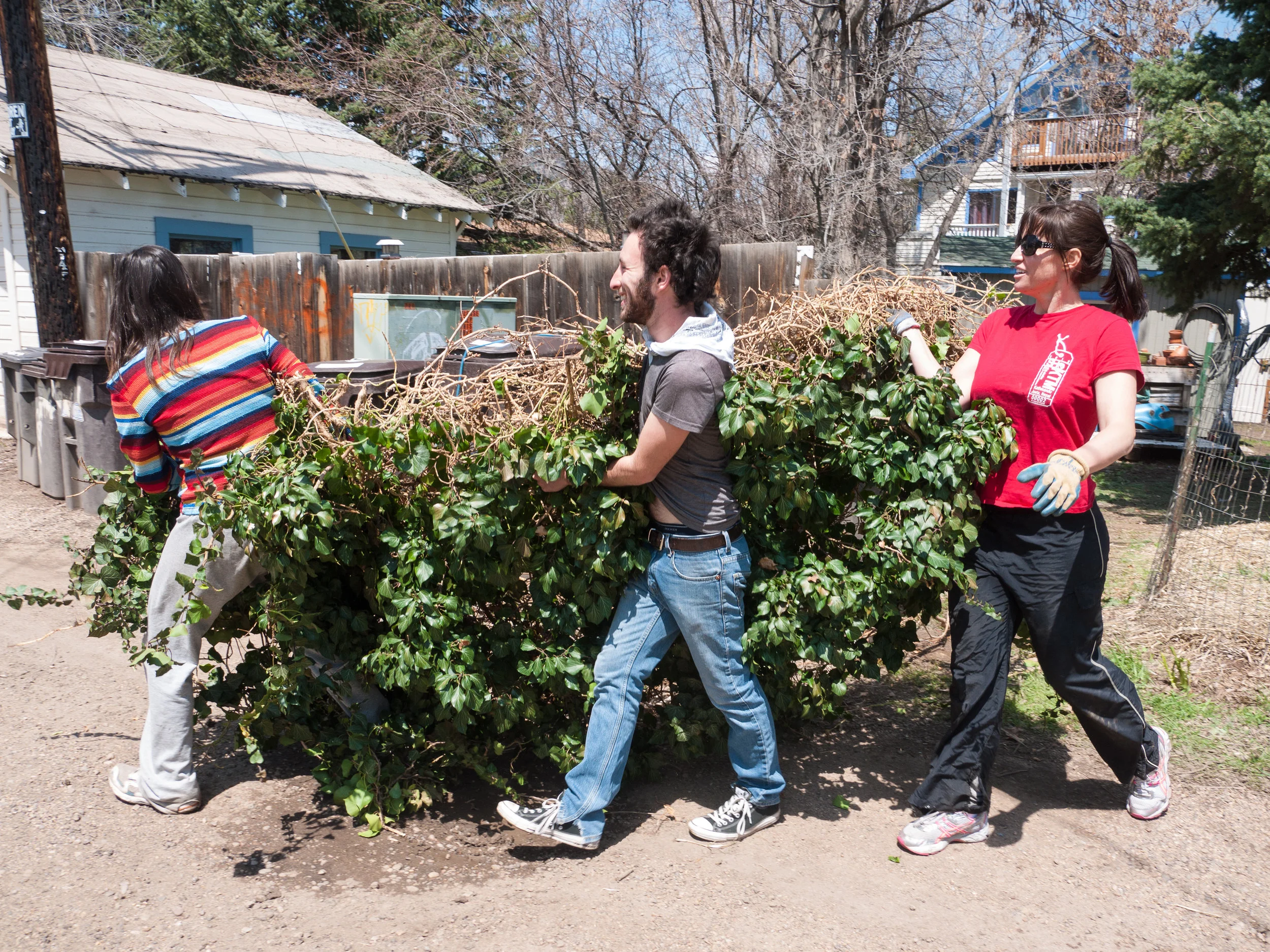Shared Housing: Cooperatives as a Shared Housing Option
Masala Cooperative. Credit: Boulder Housing Coalition
Republished courtesy of Colorado APA's publication of Planning Matters
by Crystal Launder and Sloane Walbert, AICP
Beginning in 2014, fast-rising rents and home prices in Boulder fueled a city-led communitywide housing conversation, Housing Boulder. As part of this conversation, cooperative housing was proposed as a tool to expand housing choice. Unlike elsewhere, the definition of cooperative housing in Boulder isn’t solely resident shareholders in a corporation that owns a building. It is a group living arrangement with consensus governance and shared responsibility and resources.
The chief benefit of cooperative housing is its ability to increase housing affordability through sharing costs and resources with more individuals. Sharing enables more efficient use of land and housing and more sustainable living. Residents also report enjoying the social support and time saving of cooperative living. Those who stand to benefit the most from cooperative housing are those with lower or stretched incomes such as childcare providers, nonprofit workers, seniors, and single parents.
Ostara Cooperative Vegetable Garden. Credit: Boulder Housing Coalition
Cooperative housing was introduced to Boulder in the mid-1990s by ordinance; however, factors such as requirements for homeownership, parking requirements, and a six-person occupancy limit prevented the creation of any co-ops under the ordinance. The affordable housing nonprofit Boulder Housing Coalition (BHC) avoided the previous regulations, instead starting three affordable rental cooperatives by purchasing properties with nonconforming density that were originally group homes or small multi-family buildings. These legal nonconforming co-ops have allowed BHC to refine the cooperative housing model over time and prove its value as a housing choice.
Dinner Preparation at the Masala Cooperative. Credit: Zane Selvans
In 2016, City Council directed staff to update the regulations to facilitate the creation of cooperative housing while protecting existing neighborhoods from any negative effects. In 2017, after a long, and often contentious, legislative process Ordinance 8116 was passed. As part of the public process, members of the public communicated concerns about impacts on parking; increased noise, trash, and traffic; and the potential for overconcentration of co-ops in certain neighborhoods, resulting in market competition with would-be family homebuyers. In response to these concerns the ordinance included specific limitations to protect neighborhoods.
Key elements of the update include:
Licensing: Cooperatives processed as licensed activity rather than conditional use (similar to rental licensing). The majority of regulations were moved from the land use code to other sections of the city code.
Zoning: Cooperatives permitted in all zoning districts except agricultural, industrial, or public zones, and exempt from standard occupancy limits.
Size Minimums: Existing structures to be converted to co-ops must be 2,000 square feet and have a minimum of 200 square feet per occupant.
Occupancy Limits: 12 residents in low density residential districts, 15 in all other districts.
Cooperative Types: Not-for-profit permanently affordable, private equity (ownership), and rental.
Saturation Limitation: Minimum distance of 500 feet between co-ops.
Limitations on Licenses: No more than ten new licenses per year, with some exceptions.
Third-party Certification and Training: Expert Housing Cooperative Organizations (ECHOs) train and certify new cooperatives.
Parking Limits: No more than three cars parked on the street, must meet required off-street parking for the zone district (one space for detached single-family home).
Transportation Demand Management: For co-ops in Neighborhood EcoPass Districts all residents must have transit passes.
Advertising: Co-op must be licensed before advertising for housemates.
As with any new ordinance, there have been implementation challenges. The legislative process produced a license application with complex and specific requirements, which are often difficult for residents to navigate and for staff to interpret and communicate. The Co-Op Housing web page was established to help aspiring co-ops navigate the new rules. Cooperative housing proponents report that several requirements are difficult, if not impossible, to meet. As new co-ops come online, neighbors and the community at large continue to recommend lower occupancy rates and additional off-street parking.
Seven additional co-ops have been licensed under the ordinance, including one not-for-profit permanently affordable cooperative. All units created are nonprofit or investor-owned rental co-ops, with no new private equity co-ops. Staff anticipates returning to City Council with quarterly updates, additional data, and potential code updates to address concerns and implementation challenges.
Per Lincoln Miller, Executive Director of Boulder Housing Coalition, “The ongoing challenges to affordable cooperative housing development are still numerous. In the 7 years it took to pass the ordinance, housing prices have doubled. This makes acquisition of future co-ops, even with City of Boulder Division of Housing support, very difficult. In addition, administrative hurdles with the overly complex ordinance will continue to be a challenge for each co-op we develop."
Yard Work at the Masala Cooperative. Credit: Zane Selvans
Crystal Launder is a housing planner for the Department of Housing and Human Services in Boulder, CO.
Sloane Walbert, AICP, is a senior planner with the Planning Department in Boulder, CO.
Published in January 2019 | Courtesy of Colorado APA's publication of Planning Matters




